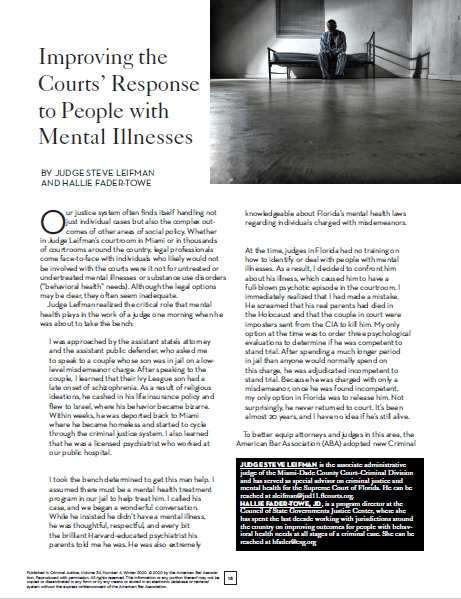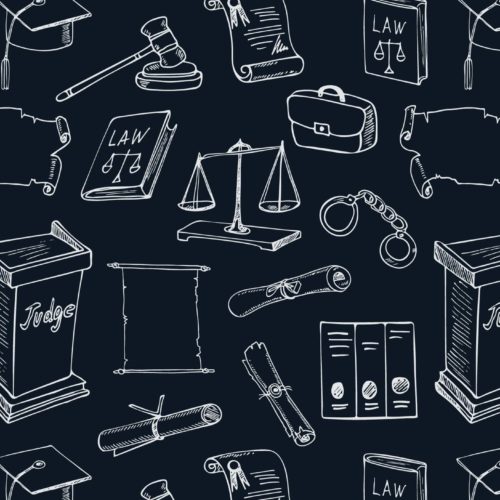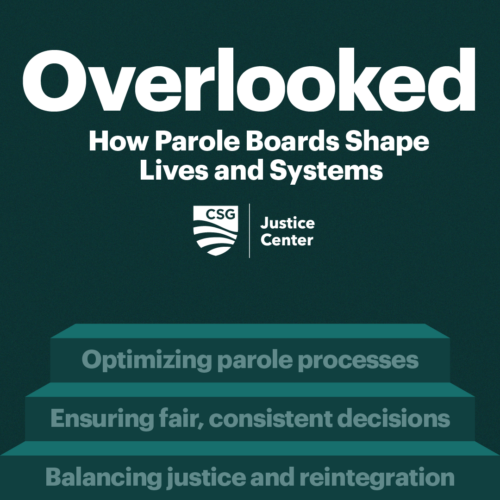Improving the Courts’ Response to People with Mental Illnesses
From Criminal Justice, a publication of the American Bar Association, this article explores how judges and lawyers can better serve people who have mental illnesses.
Published in the Winter 2020 edition of Criminal Justice, Steve Leifman, the associate administrative judge of the Miami-Dade County Court—Criminal Division, and Hallie Fader-Towe, a program director at The Council of State Governments Justice Center, discuss how judicial and legal leaders can better respond to people in their courtrooms who have mental illnesses.
The article is in response to a growing trend: people who likely wouldn’t otherwise be involved with the courts, are finding themselves there due to untreated or undertreated mental illnesses or substance use disorders.
Judge Leifman and Fader-Towe discuss common misunderstandings about people who have mental illnesses and outline best practices judges, attorneys, and court administrators can use to work more effectively with this population.
 Zero Returns to Homelessness Initiative Launches Nationally, with Pennsylvania Leading the Way
Read More
Zero Returns to Homelessness Initiative Launches Nationally, with Pennsylvania Leading the Way
Read More
 New Hampshire Continues Justice Reinvestment Effort to Improve Conditions for People Who Are High Utilizers of Criminal Justice and Behavioral Health Systems
Read More
New Hampshire Continues Justice Reinvestment Effort to Improve Conditions for People Who Are High Utilizers of Criminal Justice and Behavioral Health Systems
Read More


















